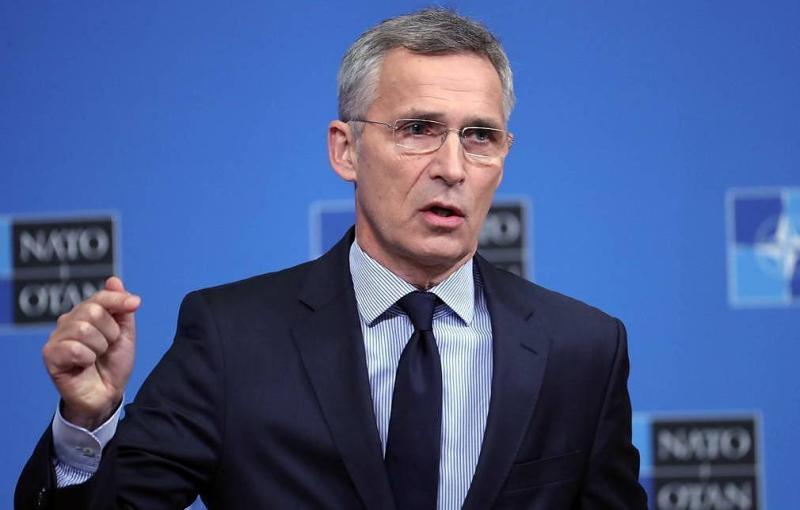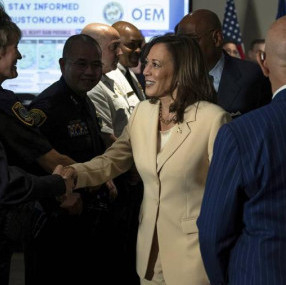
© EPA-EFE/OLIVIER HOSLET/TASS
On February 17 to 19, Munich hosted the 59th annual International Security Conference. Russia did not attend it, despite fears among politicians and experts that building security and irenicism is hardly possible without dialogue with Moscow. However, Russia itself does not seem particularly upset, since the conference has long discredited itself, appearing as an anti-Russian mouthpiece. For this very reason this year marks the Russian official delegation’s second successive non-participation for reasons of expediency. In this regard, the Russian Foreign Ministry expectedly said that none of the Russian officials would have flown to Munich even if invited.
Ahead of the conference, an analytical report was released to become sort of a theoretical foundation for the upcoming discussions, its ideological pitchfork to comply everyone else’s stances with.
The report mostly dealt with dividing the world into "liberal democracies" and "revisionist autocracies seeking to change the world order," and Russia was naturally attributed to the latter. However, it is not only Moscow's action that makes them see signs of "autocratic revisionism intensifying." In their opinion, China poses an even more serious and systemic challenge to the "liberal democracies". German experts accused it of tacitly supporting Russia's war, attempts to violently consolidate its own sphere of influence in East Asia, and comprehensive efforts to promote an autocratic alternative to a liberal rules-based international order.
Still, the report recognizes a third camp here – the states of Asia, Africa and Latin America that may not support Moscow’s military actions in Ukraine, but won’t join anti-Russian sanctions or endeavors to isolate Russia. In this regard, a major task for the "liberal democracies" is to convince those states of benefits related to the Western-proposed model, the report points out.
The conference itself has expectedly become a potent tool to exert psychological pressure on Russia and demonstrate cohesion of the Western camp.
The very first forum day saw Ukrainian President Vladimir Zelensky in his video-address urge his partners to step up weaponry supply to Kiev. German Chancellor Olaf Scholz warned the allies about the need to get prepared for a long confrontation with Russia. British Prime Minister Rishi Sunak said stocks of weapons in the warehouses of European countries are only intended to combat Russia, which justifies their depletion risk.
US Secretary of State Anthony Blinken did not stand aside either and announced Washington’s confidence in the victory of Ukraine and urged to cautiously treat any ceasefire proposals. And French President Emmanuel Macron said Russia should not be allowed to win, but a dialogue with Moscow would be necessary at some future day.
The single implication is as follows: with Russia defeated, negotiations can only begin on the terms of the West.
However, there has been a counter-pinion voiced by really affluent members of the world community.
Director of the Office of the Central Foreign Affairs Commission of the Chinese Communist Party (CCP) Wang Yi made an unexpected statement when delivering his speech at the conference: the Chinese authorities will present their own plan to resolve the crisis by the anniversary of Russia’s special operation in Ukraine.
Wang Yi emphasized that even in the most complicated situations "peace must be given a chance," and called for a responsible stance in a stressful international environment. This especially refers to Europe, he noted, adding that some political forces may not be willing to see peace talks begin because of their own strategic goals.
And Pakistani Foreign Minister Bilawal Bhutto Zardari said at a meeting with his Ukrainian counterpart Dmitry Kuleba that Islamabad stands for a speedy settlement of the conflict between Russia and Ukraine by diplomatic means.
In fact, this is exactly what the Global South awaits, whose states Munich ideologists are going to re-educate.
Wang went on with the Russian issue during his meeting with US Secretary of State Anthony Blinken. In particular, he called on the United States to try another tack in relations with China, pointing out that the Chinese government will never accept Washington's attempts to threaten Russian-Chinese relations. "China-Russia comprehensive strategic partnership of coordination is built on the basis of non-alliance, non-confrontation and non-targeting of third countries, and is within the sovereign rights of two independent countries," Wang Yi said.
Meanwhile, it is partnership between Russia and China that worries the United States most of all today. In an interview with NBC, Blinken said Washington is "very concerned that China’s considering providing lethal support to Russia." According to him, the State Secretary made it clear to Wang Yi in Munich that support of the kind will include a genuine threat to China's relations with the United States. According to Blinken, Beijing has so far supported Moscow both politically and with alleged military non-lethal assistance.
Beijing’s response was not long in coming. "We will never tolerate US instructions or even threats to put pressure on Russian-Chinese relations," the official website of the Chinese Foreign Ministry said.
Sooner or later the West will have to restore ties with Russia, as President Macron told the forum. And this has to be done under conditions Russian President Vladimir Putin spoke about in Munich back in 2007. This particularly refers to the multipolar world built by Moscow, Beijing and a number of other states. This year’s Munich Security Conference has highlighted further global aggravation, with its participants having felt "nervous" as they foresee an end to the existing world order, Politico claims.
However, the latest event seems to have only become a propaganda "warm-up" for a larger event — a February 20 speech by US President Joe Biden to mark Russian special operation’s anniversary he is set to give in Poland. He will apparently summarize all the lines drawn in the sand to Russia, praise himself for rallying up the West, and intimidate those having no stomach for "liberal democracies". One should not expect anything about a just world or equal security. At least from the West.









